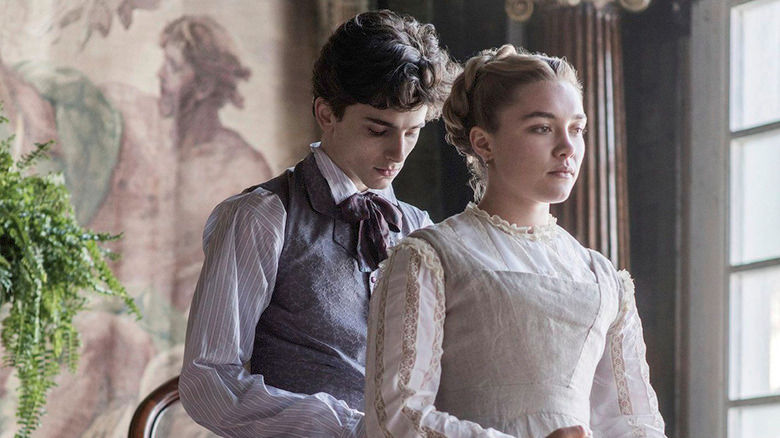Why Millennials Are Obsessed with Shows Like The Summer I Turned Pretty
- Joleen Raquel

- Aug 19, 2025
- 4 min read
We might be paying mortgages, running to Costco, and managing work deadlines now, but give us a teen summer romance series and suddenly we are seventeen again, feeling every glance, every almost-kiss, and every heartbreak like it is brand new.
Shows like The Summer I Turned Pretty are not just pretty beach houses and slow-burn love triangles. They are part nostalgia trip, part emotional reset button, and part masterclass in why romance storytelling has stayed addictive for centuries.

1. Nostalgia Is Emotional Comfort Food
Millennials grew up in the golden era of teen TV: The O.C., One Tree Hill, Gilmore Girls, Gossip Girl. Love triangles, grand gestures, and poetic voiceovers were our emotional background noise. Even reality shows like Laguna Beach fell into the same beat.
Psychologists say nostalgia actually helps regulate emotions because it gives us a sense of continuity during times of stress or uncertainty. When adulthood feels like one long to-do list, dropping into Cousins Beach feels like flipping through a scrapbook from your favorite summer, even if it is one you never really had.

2. The Love Triangle Is a Literary Power Move
The Team Conrad vs. Team Jeremiah debate might feel modern, but love triangles are one of the oldest tricks in storytelling. They have been around because they work. They force a character to reveal who they are by showing what and who they choose.
Think of Marianne in Sense and Sensibility, choosing between stability and romance. Or Jo March in Little Women, choosing between a safe match and her independence. The love triangle is rarely just about which boy. It is a mirror for the main character’s growth, values, and identity.

3. Escapism Without the Emotional Hangover
A lot of adult TV these days is intense: crime, betrayal, end-of-the-world scenarios. Even the romances are heavy with tragedy or complicated moral dilemmas.
The Summer I Turned Pretty is different. It is high emotion with low stakes for the viewer. The heartbreaks are real, but they live in a safe, sun-soaked world. It is the same comfort as rereading Anne of the Island or Persuasion where you get the drama without needing a week to recover.

4. Main Character Energy and the Coming-of-Age Hook
In literature, there is a term for a story about a character’s emotional and moral development: bildungsroman. Belly’s arc is a perfect example. Like Elizabeth Bennet or Jane Eyre, she is figuring out who she is, what she wants, and what love looks like for her.
For millennials who have been in “supporting character mode” for years, whether parenting, caretaking, or grinding at work, watching someone center themselves in their own story is both nostalgic and aspirational.

5. The Soundtrack Is Basically Another Character
When Cruel Summer by Taylor Swift swells during a scene, it is not just background noise. Music in TV is a modern version of what letters, poems, or soliloquies used to do in literature. It freezes the action so you can sit in the feeling. Don't even get me started on how I felt seeing Conrad for the first time while Lover played. What's their music budget anyway?!
Just like Mr. Darcy’s letter in Pride and Prejudice or Laurie’s proposal in Little Women, a perfectly chosen song makes a scene unforgettable. The right lyric at the right moment can stick with you as much as the plot itself.

6. Timeless Themes, Modern Packaging
Love, loss, friendship, and change have existed in storytelling for centuries. What hooks millennials is how they are blended with contemporary storytelling elements. The show uses text messages, social media mentions, and modern slang, but wraps it in timeless settings like family kitchens, small-town beaches, and late-night porch conversations.
That balance makes it feel current without losing the romantic charm we have always loved.
💡 Did You Know?
The Love Triangle in Literature: The device appears in works as old as The Iliad (Helen, Paris, and Menelaus) and Arthurian legend (Arthur, Guinevere, and Lancelot). It is less about indecision and more about revealing inner conflict.
Nostalgia in the Brain: Studies show it activates the prefrontal cortex, which is tied to decision-making and emotion regulation. That is why watching an old trope in a new show can actually feel calming.
Soundtracks as Storytelling: Film scholars note that popular music can act like shorthand for emotional beats. It is a technique that dates back to silent films, where live musicians set the tone for each scene.
Why Teen Settings Work for Adults: Media researchers call it “temporal displacement.” Even if the story is not about your exact experiences, the age of the characters can transport you to that stage of life.

Millennials love The Summer I Turned Pretty because it taps into something we have known all along. Romance stories are not about age. They are about emotion. They let us revisit the part of ourselves that believed love could rewrite everything while letting us watch with the wiser, steadier eyes of adulthood.
It is not about wanting to be seventeen again. It is about keeping that spark of hope alive, even when life is a lot more bills and a lot fewer beach bonfires.













Comments